

Ilia Chavchavadze was born in Kvareli on November 7, 1837 (October 27 in the old style).
The poet's grandfather Paata Bespazi's son was a prominent person during the Erekle second. Ilia's father, Grigol, was a military officer, and Ilia's mother was Mariam (Magdane) Beburishvili.
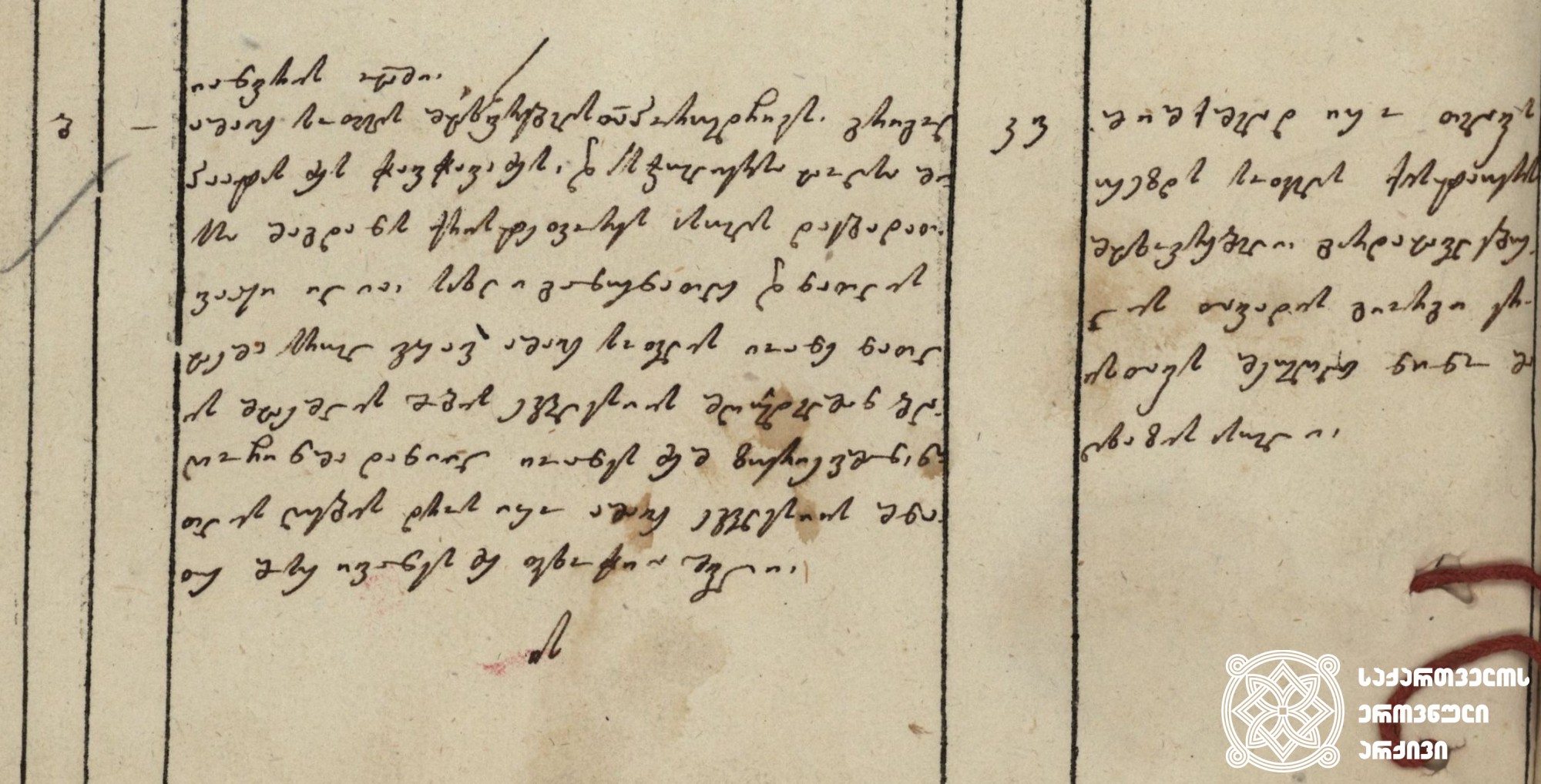
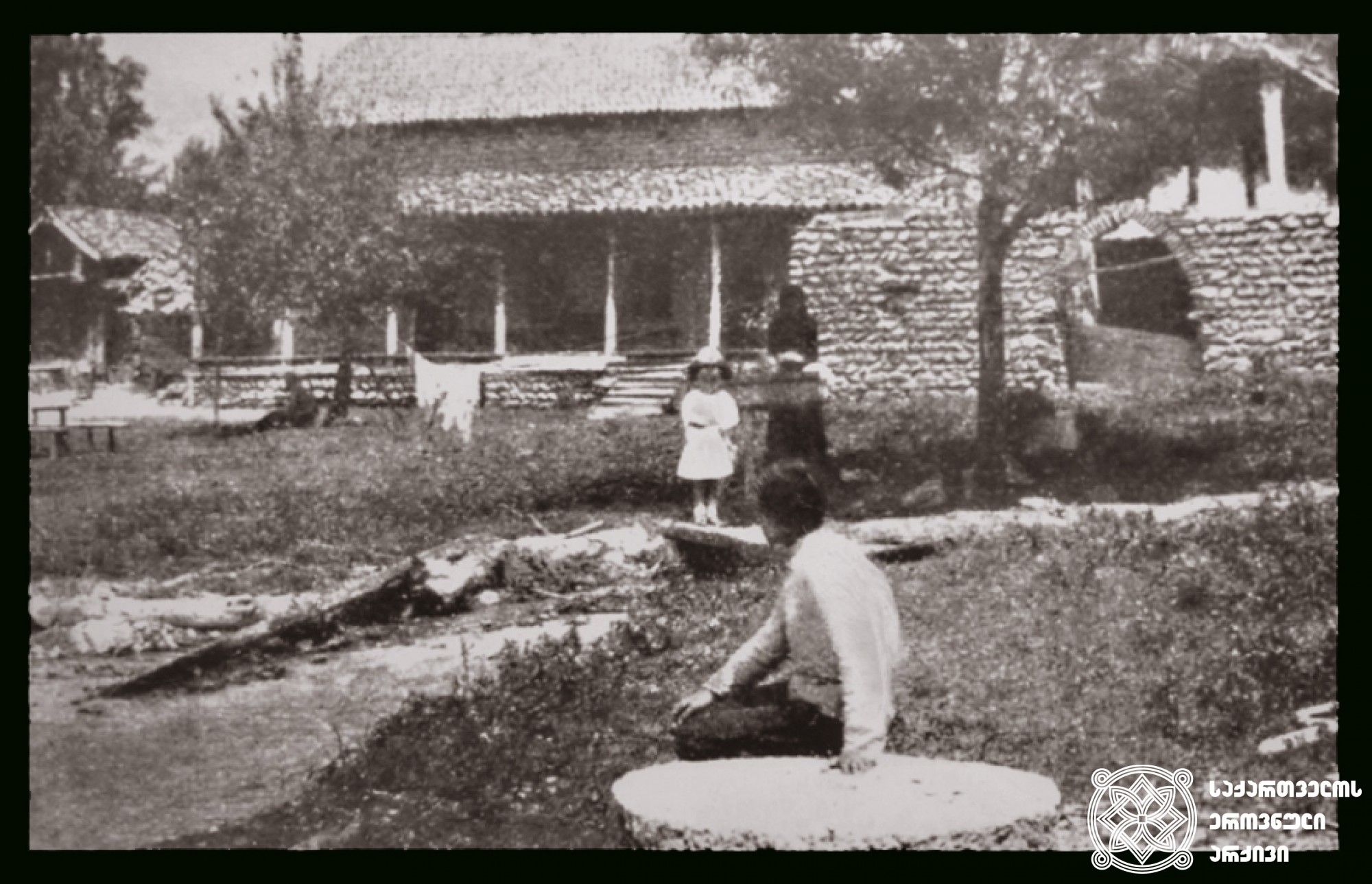
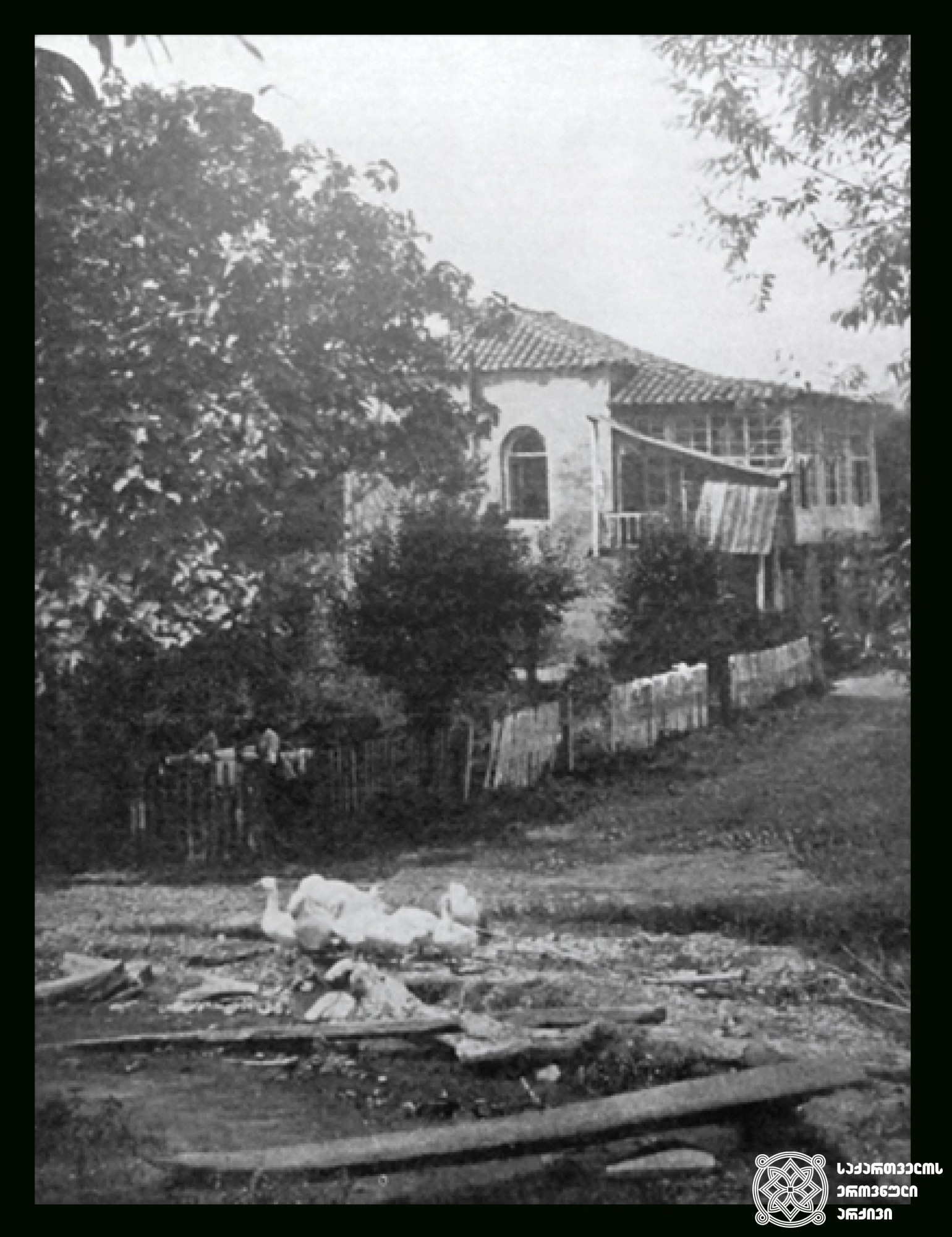
.jpg)
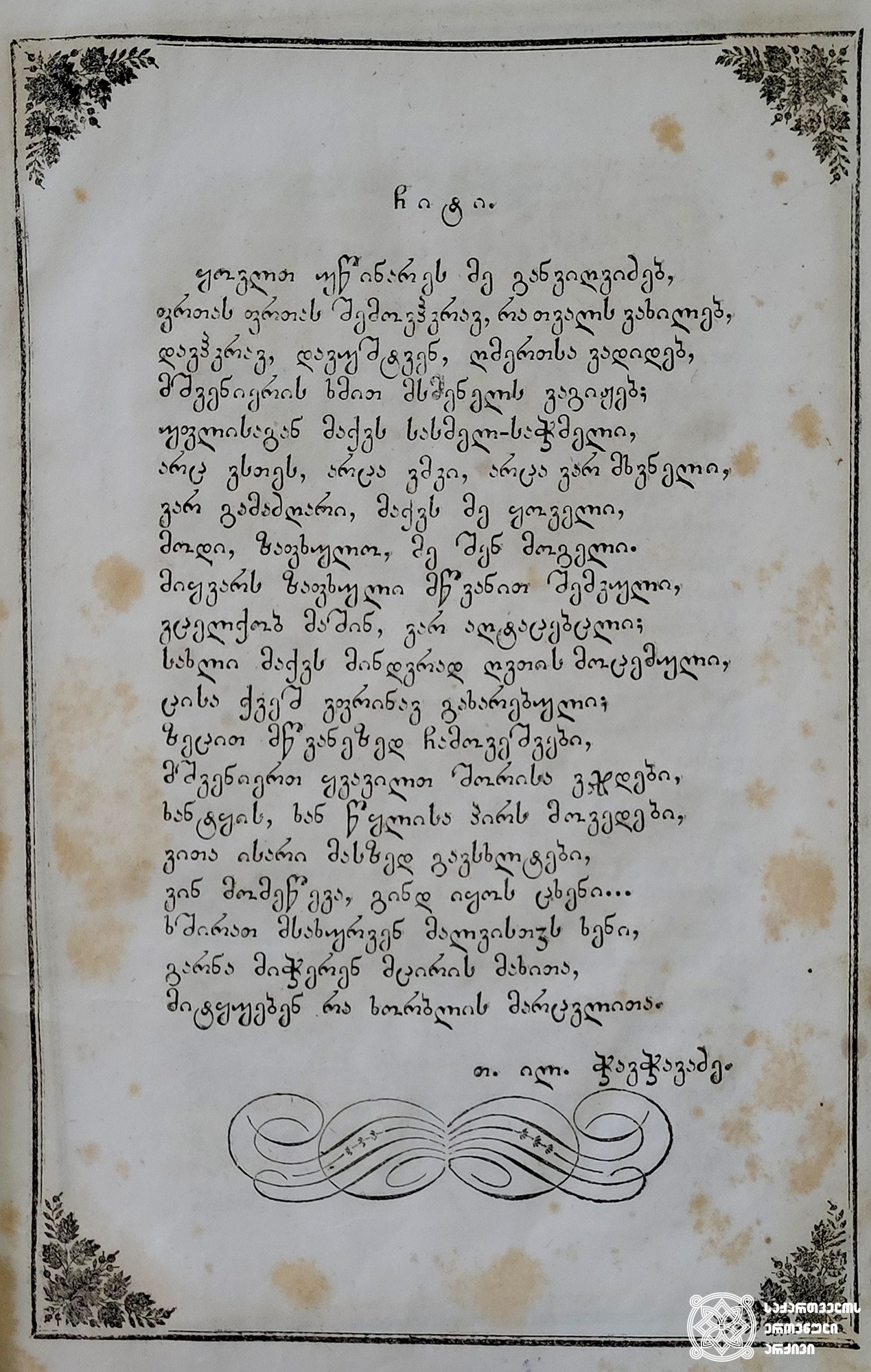
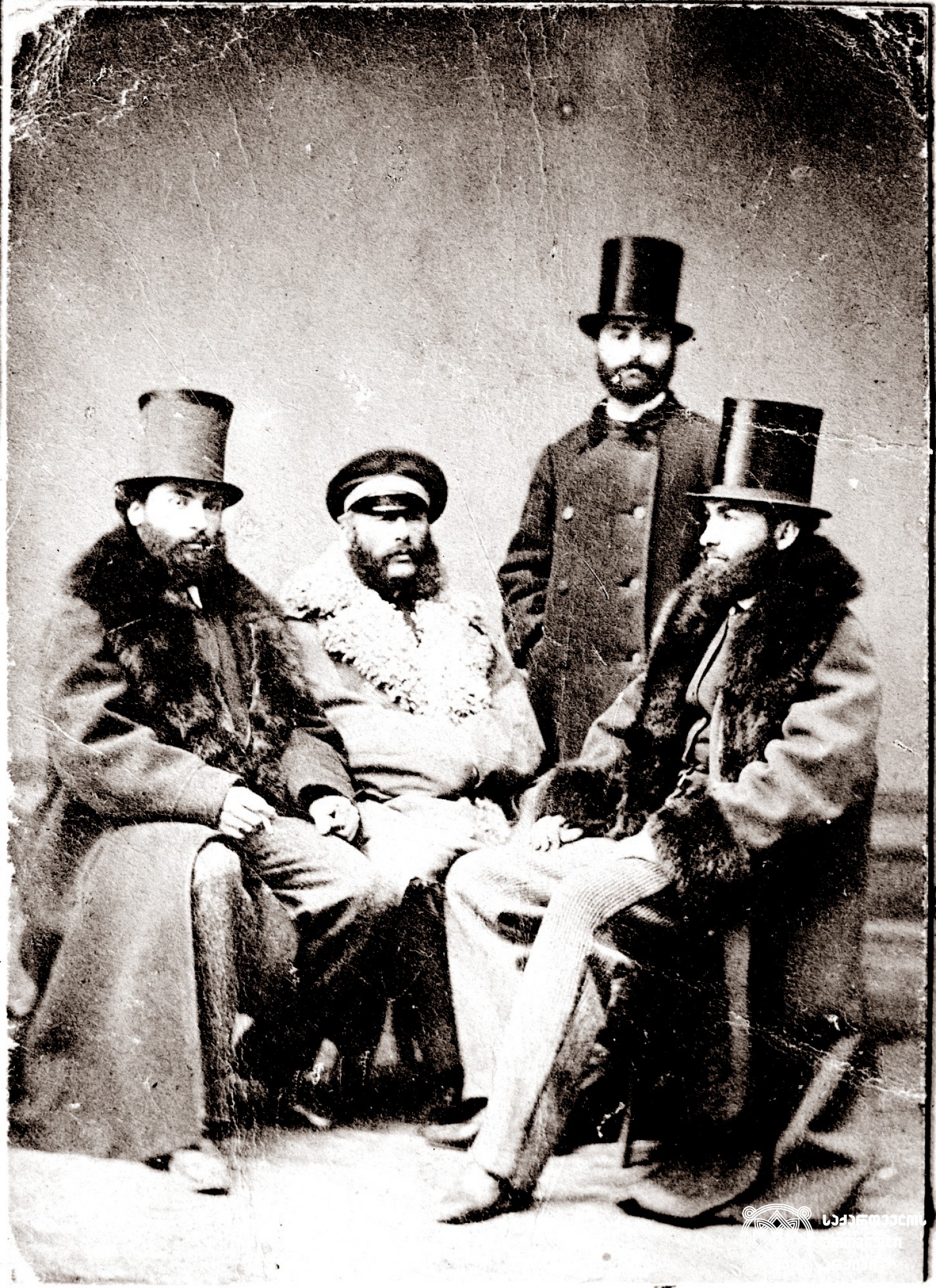
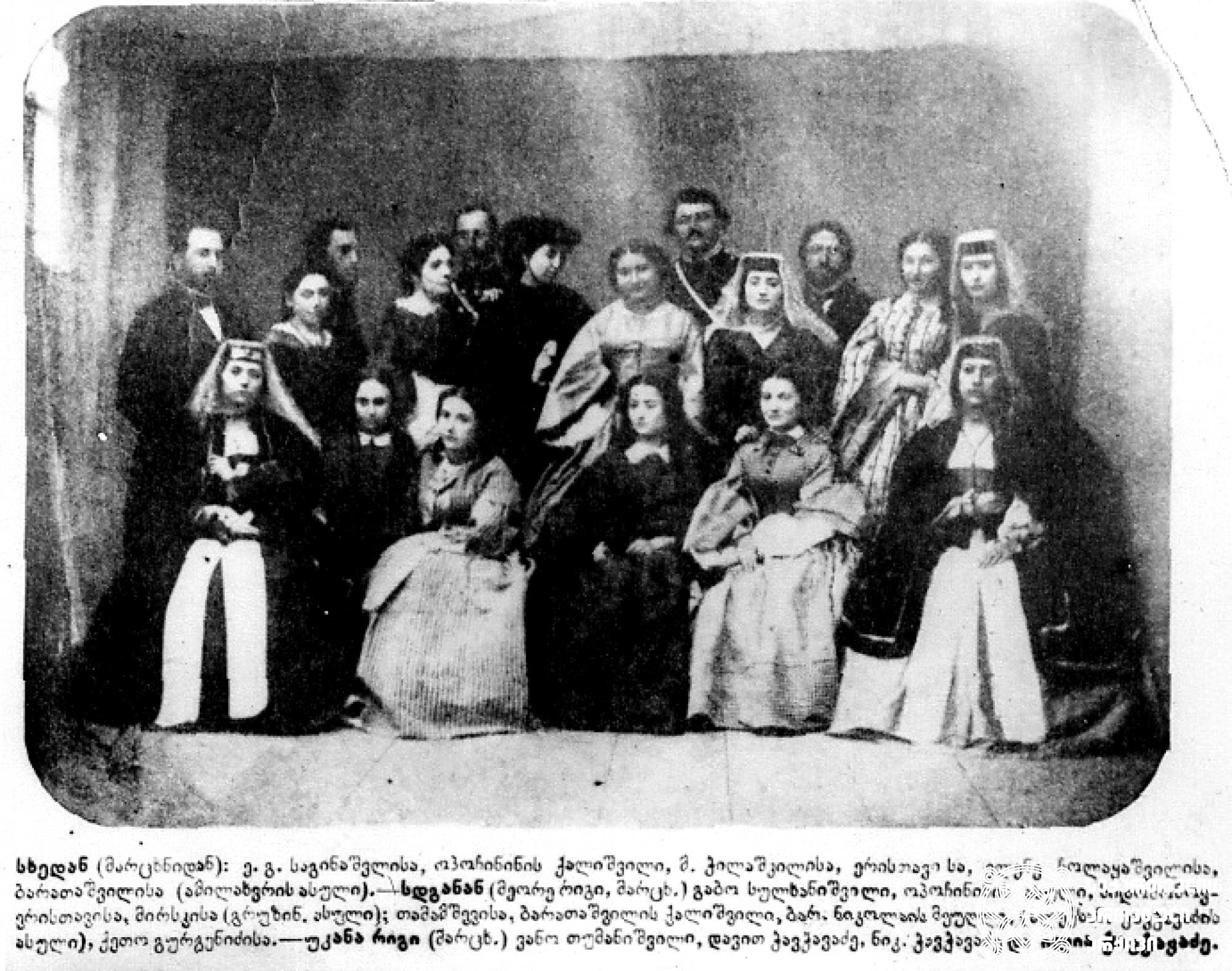
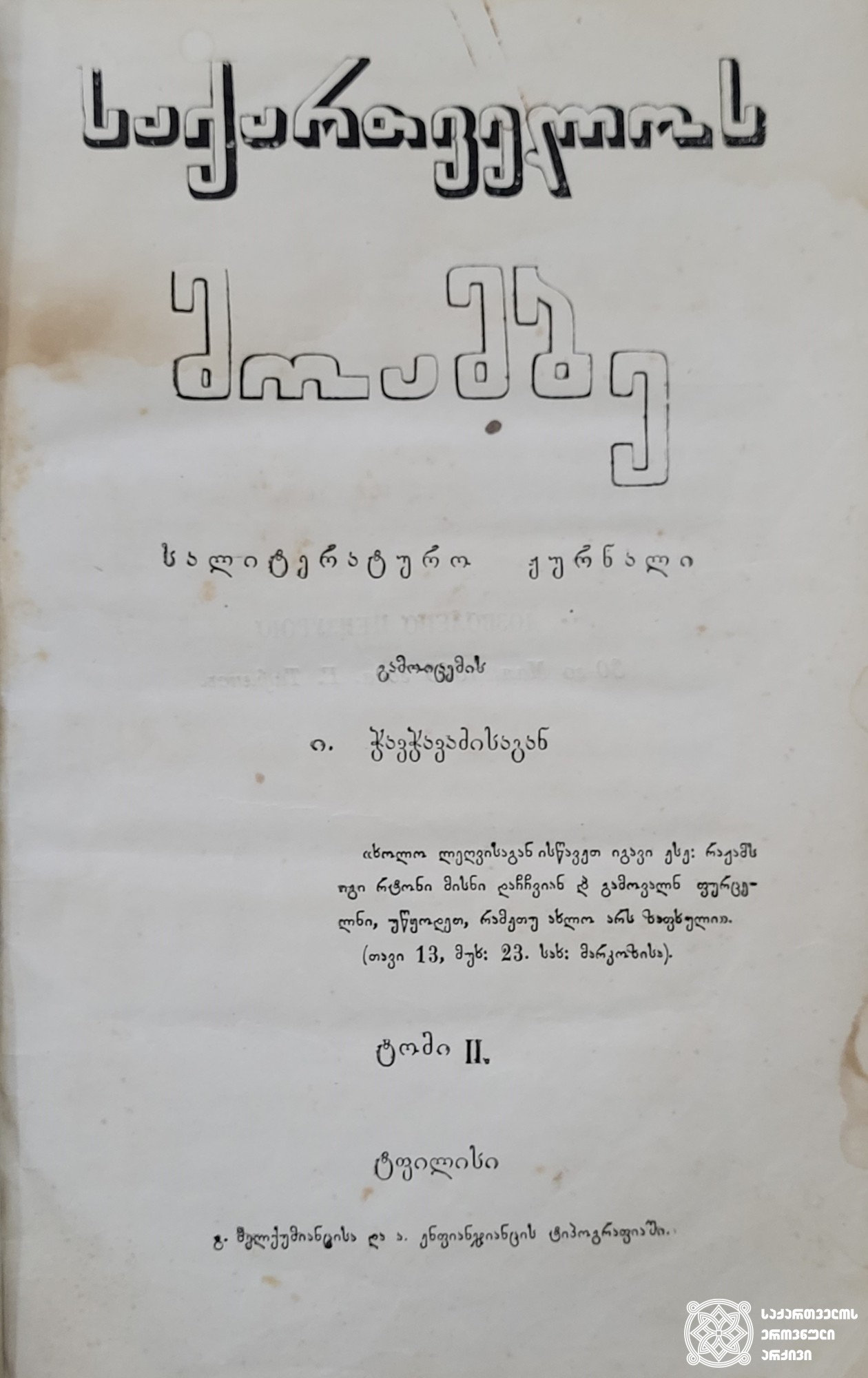
In 1864, Ilia Chavchavadze started working as an official of the special powers of the General Governor of Kutaisi. He supported the process taking place during this period - the release of serfs - which caused the heartache of the nobility itself. He returned to Tbilisi in November 1864 and was appointed as a conciliatory mediator in the process of rural reform in Eastern Georgia.
In 1868-1873, he worked as a conciliation judge of Dusheti Mazri.
During these times, he wrote "Glekhta Gantavisuflebis pirveli Droebis Scenebi" (1865), revised "Kartlis Deda" (1871) and "Achrdili" (1872), completed work on "Mgzavris Tserilebi" (1871) and "glakhis Naambobi" (1872), at the same time During this period, he created sharp satirical poems - "Ra Vaketet, Ras Vshvrebodit anu Sakartvelos Istoria Meckhramete Saukinisa"and "Bednieri Eri" (both 1871), important works of Georgian patriotic lyrics - "Chemo Kargo Kvekanav Razed Mogitskenia" (1872); Satirical publicist poems "Gamotsanebi", "Kidev Gamotsanebi" and "Pasukhis Pasukhi" (1871-1872).
At the end of the 1860s, Ilia Chavchavadze, together with his associates, started working on the establishment of the Tbilisi National-Deputy Bank. In 1873, the charter of the bank drawn up by him was sent to Russia for approval, and in the same year, Ilia himself came to St. Petersburg to resolve the issue.
From the autobiography: "For the sake of this work, I resigned from the state service and went to St. Petersburg. The charter was approved by the government in 1875 as a special feature of the above. This year, the bank started to operate and, although it had 240,000 rupees as the principal amount, today it has reached the point where it makes a profit of more than 360,000 rupees every year. In addition, the capital amount, brought from the nobles themselves to establish the bank, has already been returned to each of the founding members. At present, one private gymnasium is maintained by the profit of the bank, and although the gymnasium also has a boarding school for the children of the poorest nobility, children of all ranks study in this school. In addition, with this profit, one agricultural school is maintained, which also accepts children regardless of rank. I have been the chairman of the board since the establishment of the bank. This position is by choice, and everyone is chosen once in three years."

In his autobiography written in 1902-1903, Ilia Chavchavadze wrote that one private gymnasium and one economic school were kept with the profits of the Getry Bank, in which children were admitted regardless of rank.
From the day of the establishment of the bank until 1906, before the election to the State Council, Ilia Chavchavadze was the chairman of its board.
In 1906, Ilia Chavchavadze was elected as a representative of the Georgian nobility in the State Council of the Russian Empire, and he had to leave his position in the bank.
The participants of the dinner organized by the employees of Tbilisi Sathavadaznauro Bank in connection with the election of Ilia to the State Council at the "Edemi Baghi" restaurant.
Sitting from the left: Konstantine Makashvili, Gabriel Sakvarelidze, Levan Cherkezishvili, N. Meskhisvili, Niko Tsvedadze. M. Bagration-Gruzinski, Mikhailov, Ilia Chavchavadze, Iakob Gogebashvili. Mikheil Vezirishvili K. Nasidze, Saatnazov, R. Gvamichava
Standing in the first row: Anton Furtseladze, G. Javakhishvili, Orbeliani, Kote Abkhazi (niece of Ilia Chavchavadze), unknown person, Aleksandre Kartvelishvili, G. Dubin, Alexandre Zizimkreli, Ivane Ratishvili, Z. Goliashvili, N. Jorjadze, N. Eristavi, Tsitsishvili, L. Meskhisvili, E. Antonovskaya, N. Guladze, L. Kobakhidze.
Standing in the second row are: K. Kartvelishvili, Al. Saginashvili, I. Corintheli, R. Tsitsishvili, Abashidze, Kazakhishvili, G. Jajanashvili, b. Mchedlishvili, Mirotadze, M. Arjevanidze, Simon Kldiashvili.
In the foreground: G. Klimiashvili and G. Garakanidze.
In the background, the owner of Eden Garden, Konstatine (Kotsia) Machavariani, leaning on the railing.
Tbilisi, 1906.
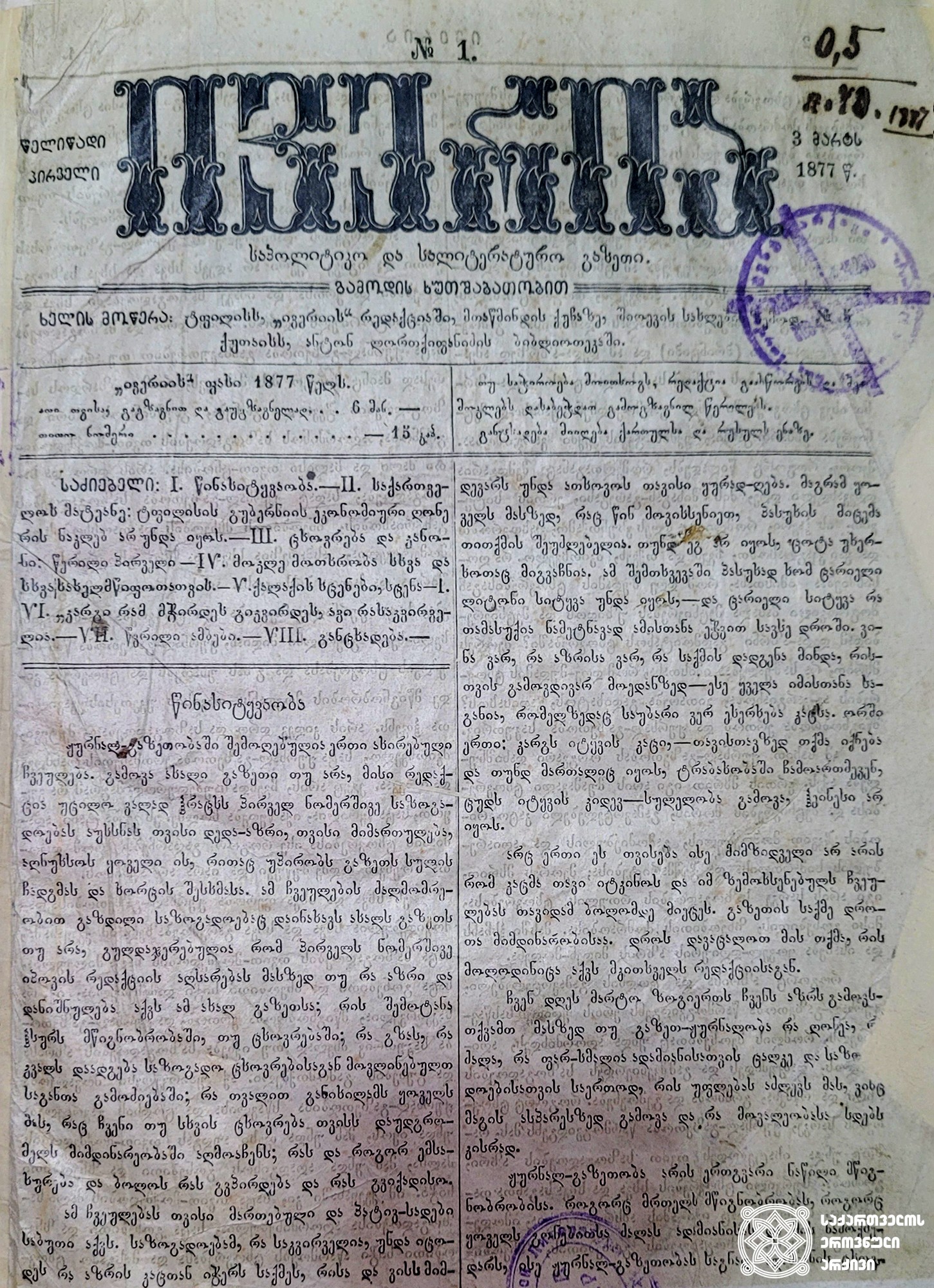
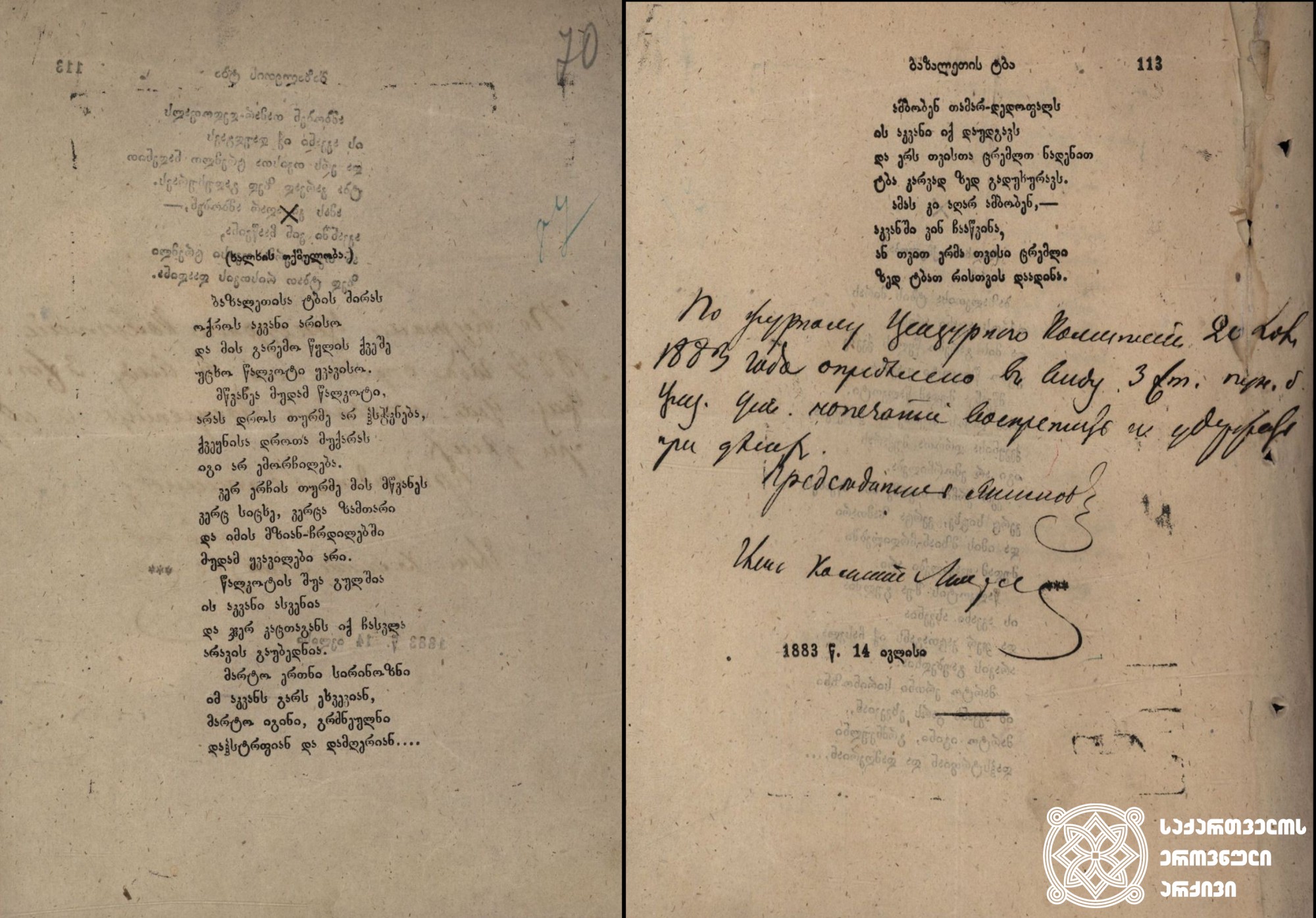
.jpg)
Ilia Chavchavadze had outstanding relations with foreign writers. His friendship with Marjorie Wardrop and Arthur Leist is especially noteworthy.
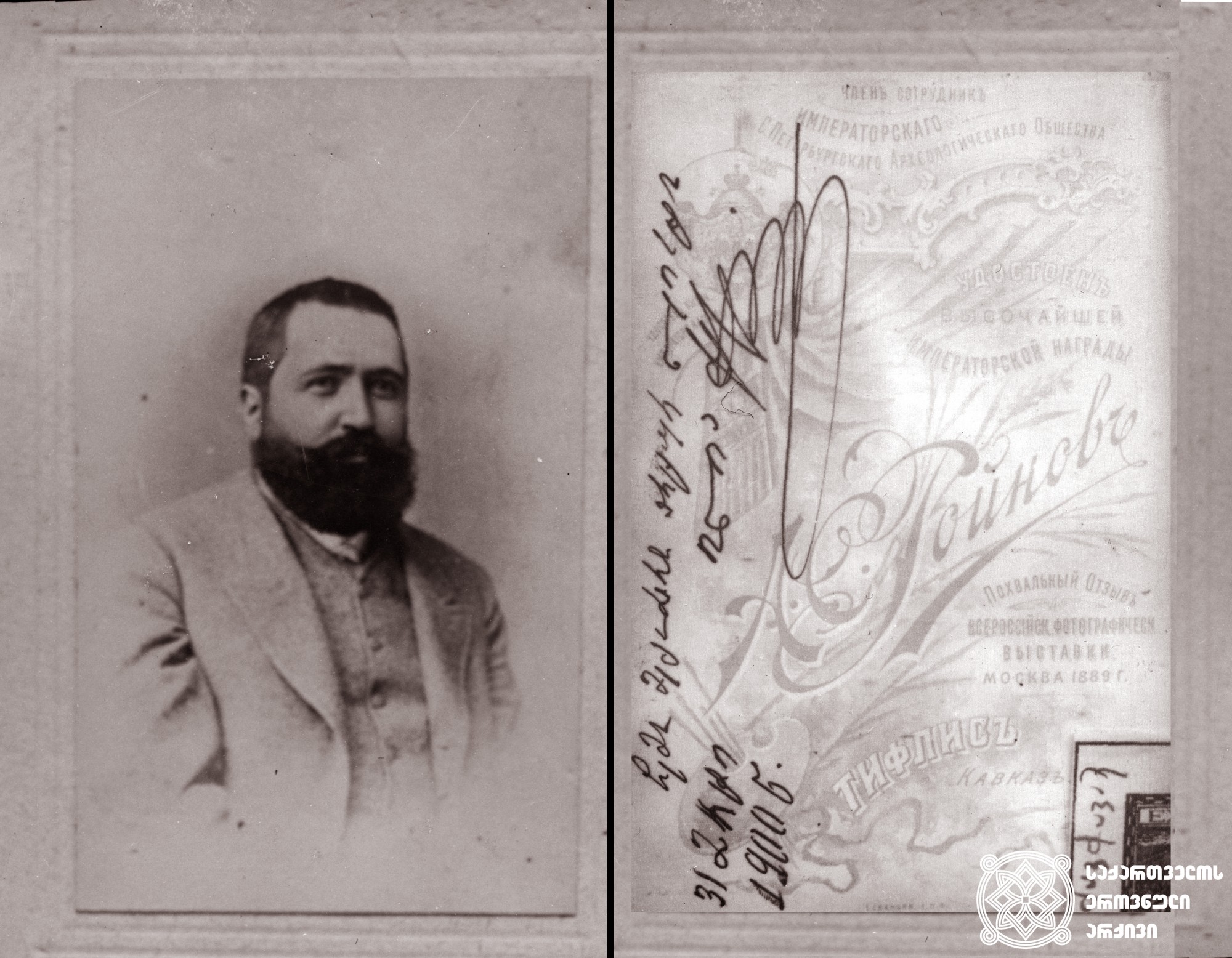
"...if we used to watch Mr. Leist from afar, today he came here to get to know us up close. It is hoped that the Georgian who gets to know him will fall in love with himself more. It is hoped that this lovingly conceived personal word of Mr. Leist's will spread to the whole educated country the news that somewhere far away there is a little paradise called Georgia, and in that little paradise, there lives a little nation, which suddenly has a big heart for the success of humanity, goodness and for happiness God bless Mr. Leist!"
In the photo: Ilia Chavchavadze, a photo gifted to Artur Leist. March 3, 1900.
.png)
For Ilia Chavchavadzi, Iliaoba was a special holiday. On July 21 (August 2 in the new style), the writer and public figure hosted guests in Saguramo. A number of photos taken on the holiday in different years have reached us.
Ilia Chavchavadze's works became the basis of many films, plays and songs.
Feature film "Katsia adamiani?!", 1979. Nodar Margvelashvili (Luarsabi) and Leila Shotadze (Darejani) on the set
.jpg)